Housing mason bee cocoons in your fridge? Discover the surprising truth behind this intriguing storage method for these crucial pollinators.
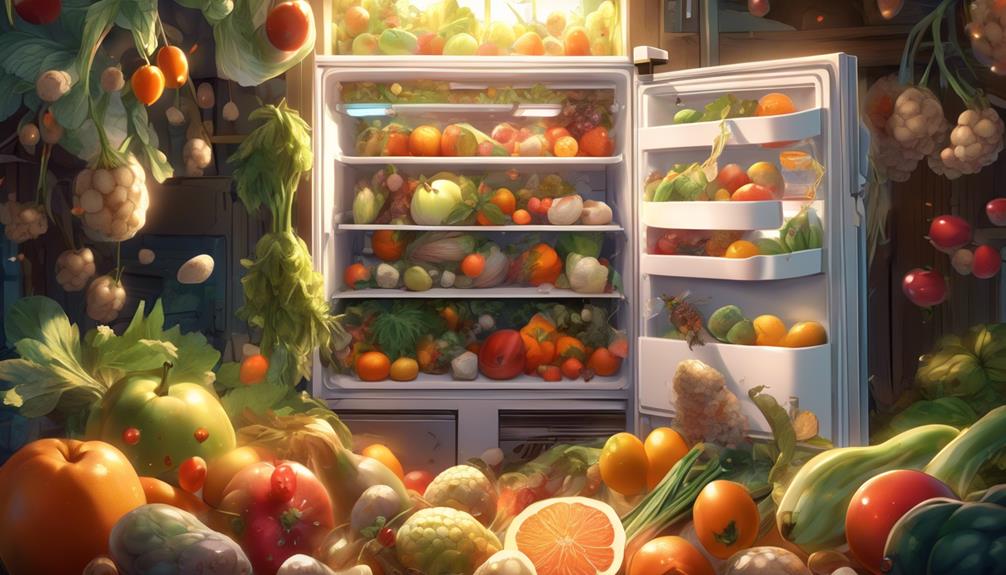
Can I Store Mason Bee Cocoons in the Refrigerator?
So, you've heard the theory that mason bee cocoons can be stored in the refrigerator and you're wondering just how accurate that could be.
It's an interesting concept, isn't it? The idea of storing these little bundles of life right next to your salad dressing and leftover lasagna.
As a bee enthusiast, you know just how important these creatures are for pollination. But the question remains: Can the cold environment of a refrigerator really mimic the conditions these cocoons encounter in nature during winter?
Well, let's dive into this topic and uncover the truth together – you might be surprised at what we find.
Key Takeaways
- Storing mason bee cocoons in the refrigerator mimics the cool, stable environment of winter necessary for their dormancy.
- Cocoons should be stored in a breathable container to prevent moisture buildup and mold growth.
- Humidity levels should be kept low to prevent dehydration of the cocoons.
- Regular monitoring and cleaning of the cocoons is important to remove any mold or mites.
Understanding Mason Bee Life Cycle
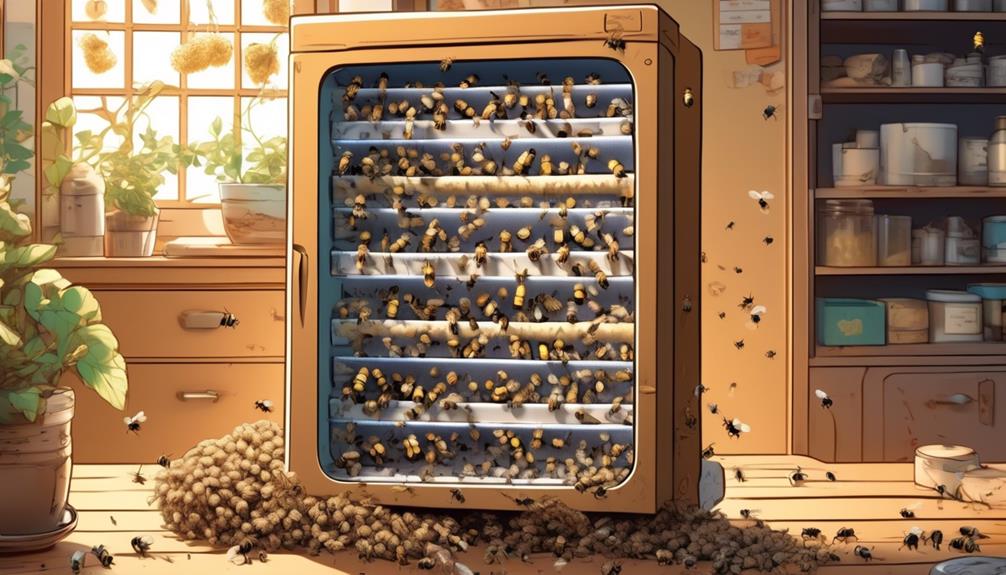
To fully appreciate the process of storing mason bee cocoons in the refrigerator, it's essential to grasp the intricacies of the mason bee's life cycle. Your journey begins in early spring when these industrious pollinators emerge from their cocoons. Unlike honey bees, mason bees are solitary creatures. Each female lays eggs in pre-existing holes, then seals them with mud – hence the name 'mason'.
In these cozy chambers, the lifecycle unfolds. The larvae hatch, feed on stored pollen and nectar, and eventually spin cocoons where they metamorphose into adults. By late summer, the next generation is ready, but they won't leave their cocoons until spring arrives. This dormancy, known as diapause, protects them from adverse winter conditions.
Now, here's where your fridge comes into play. Mason bees in diapause can survive in your refrigerator. The cool, stable environment mimics winter, keeping the bees dormant but alive. Come spring, you can move the cocoons outdoors, letting nature take its course. Understanding this cycle, you'll realize how crucial your role is in preserving these vital pollinators.
The Importance of Mason Bees
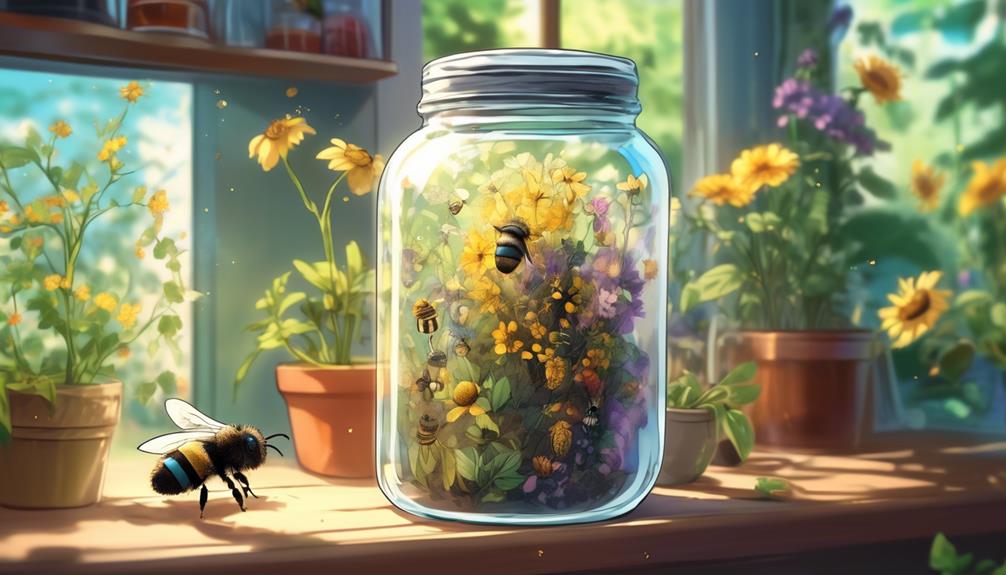
Having grasped the intricacies of the mason bee lifecycle, it's now crucial to understand the immense importance these solitary pollinators hold in our ecosystems. You may not realize it, but mason bees play a vital role in maintaining the biodiversity of our environment.
They're exceptionally efficient pollinators, even more so than honeybees. In fact, a single mason bee can pollinate what takes 100 honeybees, contributing significantly to the growth of flowers, fruits, and vegetables.
But how does this work? Well, mason bees aren't as tidy as their honeybee counterparts. They visit numerous plants in a short period, often dropping pollen as they go. This 'messy' behavior maximizes cross-pollination and increases plant diversity.
Moreover, mason bees are adapted to thrive in diverse climates, making them crucial for pollination in areas where other pollinators might fail. They're hardy, resistant to many diseases that affect honeybees, and less likely to sting, making them an excellent addition to any garden.
In a nutshell, the survival of many plant species and, subsequently, our food supply heavily depends on mason bees. Their role can't be overstated. So, it's essential to store their cocoons properly to ensure their survival and the continuation of their vital work.
Ideal Conditions for Mason Bee Cocoons
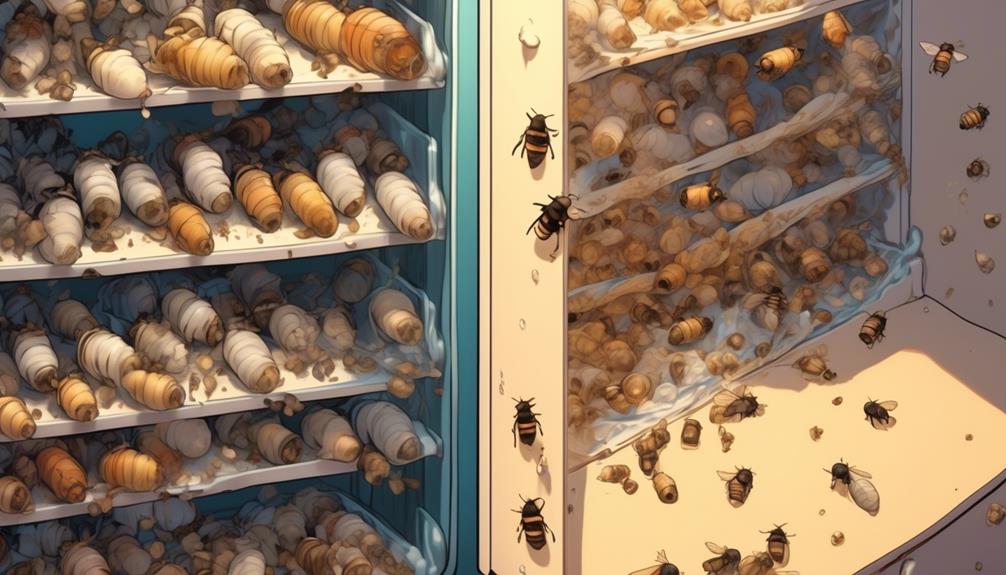
Ensuring the right conditions for your mason bee cocoons is crucial, as it can significantly impact their survival and subsequent ability to pollinate.
Mason bees need a cold, stable environment to safely overwinter. A temperature of about 2-4°C (36-39°F) is ideal. This mimics the cold winter conditions these bees naturally endure in the wild.
Your cocoons should be stored in a breathable container, such as a cardboard box or paper bag, to prevent moisture buildup which could lead to mold growth. Humidity levels need to be kept low, around 60-70%, to prevent dehydration of the cocoons.
If you're storing them in your refrigerator, be sure to place them in the crisper drawer, away from fruits and vegetables, which emit ethylene gas and can harm the bees. It's important to monitor your refrigerator's temperature and humidity levels frequently.
Furthermore, remember to gradually acclimate your bees to outdoor conditions in the spring. A sudden shift from cold storage to warm outdoor temperatures can harm them.
Properly caring for mason bee cocoons during the winter months can ensure a healthy, robust population ready to pollinate your garden when spring arrives.
Storing Mason Bee Cocoons: Methods
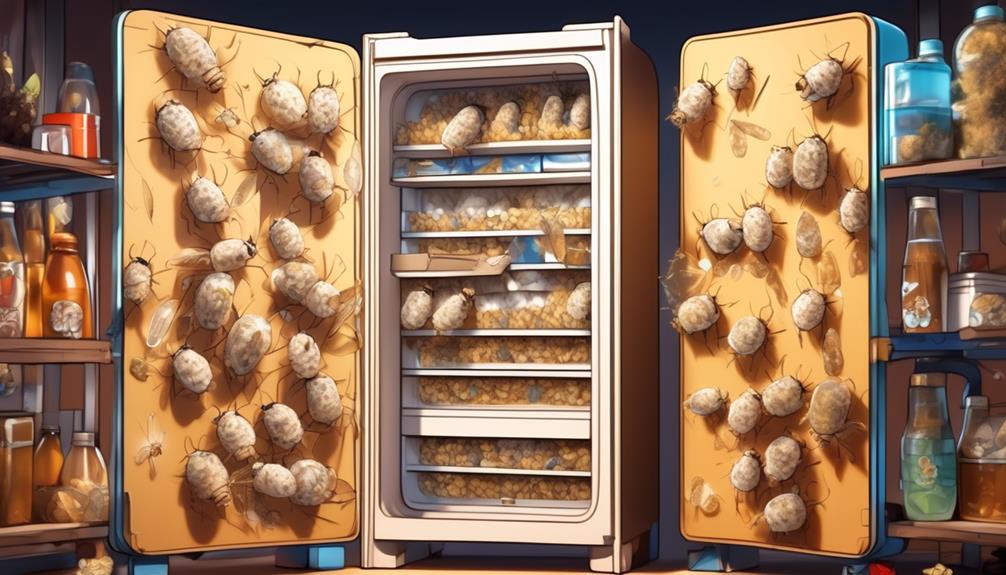
Understanding the ideal conditions for mason bee cocoons, let's now explore the specific methods you can employ to store them properly in your refrigerator.
Firstly, you'll need a breathable container like a cardboard box or paper bag. Avoid using plastic containers as they can encourage mold growth due to moisture buildup.
Next, gently place your clean, dry cocoons in the container. You're not packing a suitcase – don't overcrowd them. Leave enough space for air circulation.
Now, place this container in the crisper drawer of your fridge. This area typically maintains a stable temperature and humidity level, ideal for cocoon storage.
Monitoring is key during this period. Regularly check your cocoons for signs of mold or mites. If you notice any, remove the affected cocoons and clean the remaining ones gently with a weak bleach solution. Ensure they're dry before returning them to the fridge.
Refrigeration: A Suitable Option?
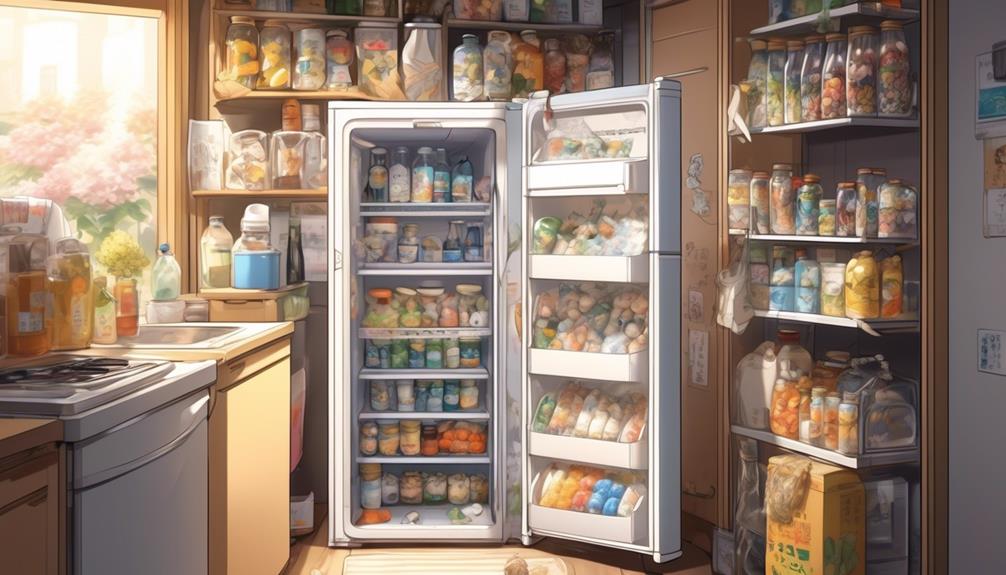
So, you might wonder if storing mason bee cocoons in a refrigerator is truly a viable option. Scientifically, it could be said that refrigeration replicates the cool, stable conditions of winter. This dormancy period is crucial for mason bees' lifecycle. However, you must consider certain factors before deciding.
Factors to Consider | Explanation |
|---|---|
Humidity | Mason bees need a certain level of humidity to survive. Too dry, and they can desiccate; too damp, they may grow mold. |
Temperature | The refrigerator's temperature must be stable, ideally between 2-8°C. Extreme fluctuations can harm the bees. |
Predators/Parasites | When stored outside, cocoons could attract predators. Refrigeration can help protect the bees. |
You can use a humidity box to maintain the right moisture level. It's important to check the temperature settings of your fridge regularly. Also, always inspect the cocoons for any signs of parasites before refrigeration. Although it requires a bit of effort, refrigeration can be a suitable option for storing mason bee cocoons if done correctly.
Conclusion
Yes, you can store mason bee cocoons in the fridge. It mimics their natural winter state, keeping them dormant and safe until spring.
However, ensure they're kept in a breathable container to prevent moisture buildup.
This method is just one of many for storing cocoons, so consider what best fits your circumstances.
Remember, these bees play a crucial role in our ecosystem, so let's give them the care they need!


